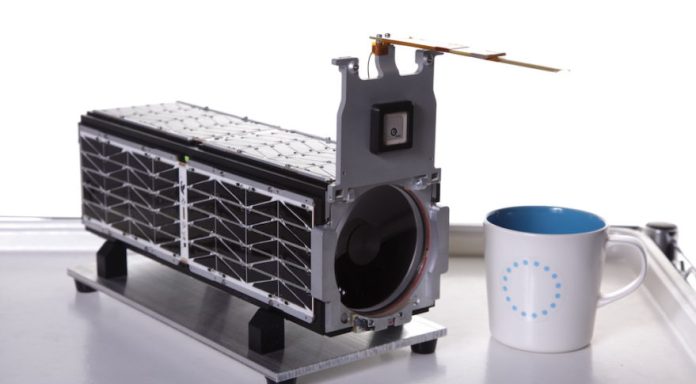
WASHINGTON — Planet announced July 7 it will go public in a $2.8 billion deal with a special-purpose acquisition company (SPAC), the second SPAC deal in the Earth observation sector in as many days.
Planet said it will merge with dMY Technology Group, Inc. IV, a SPAC that raised $345 million in a public offering in March. The merger agreement includes an additional $200 million in a concurrent round, called private investment in public equity.
After paying expenses and debt, the deal will provide Planet with $434 million in cash. It will give the San Francisco-based company at a post-transaction equity value of nearly $2.8 billion.
Planet pioneered the use of small satellites, particularly cubesats, to provide imagery at far greater frequency that traditional large, high-resolution imaging satellites. It currently operates more than 150 Dove cubesats that provide daily imaging of the planet at medium resolution and 21 SkySat high-resolution satellites, capable of selected imaging at resolutions as sharp as 50 centimeters.
Executives with both Planet and dMY Technology said that the deal will allow Planet to extend the lead they believe it has over competing imaging companies. “By virtue of its first mover initiative, we estimate Planet has a five- to seven-year lead over any other player,” said Niccolo de Masi, chief executive of dMY Technology, in a call with investors.
“We see Planet as being light years ahead of the competition in both space and data terms, and we will continue to widen that lead,” Will Marshall, co-founder and chief executive of Planet, said in the call. That lead, he said, comes from its “agile aerospace” approach for updating the designs of its satellites, combining imagery with other data and a growing number of customers that provides feedback to improve their services.
Planet’s revenues have been steadily growing, from $43 million 2016 to $113 million in its latest fiscal year, which ended Jan. 31, driven largely by customers in civil government, defense and intelligence, agriculture and mapping. The company projects that growth to accelerate, reaching $693 million in fiscal year 2026, with growth in emerging sectors like finance and energy.
Planet is not yet profitable, having reported negative free cash flow of $41 million in its latest fiscal year. The company expects to reach breakeven in fiscal year 2025, with $140 million in free cash flow the following year.
Planet’s SPAC deal comes a day after Satellogic, another Earth imaging company, announced it would go public through its own SPAC deal, raising $271 million. However, while Satellogic plans to use the funding to deploy its full 300-satellite constellation, Planet said it will instead use the funding to build out other aspects of the business.
“Planet believes it does not need to add new satellites to its fleet beyond ordinary course replacement,” de Masi said. Instead, he expects the company to focus on building up its salesforce to bring in new customers for the imagery and data products from those satellites.
Marshall said another area of growth will be in software development and machine learning, developing tools to analyze imagery and combine it with other data. “As we continue to grow, particularly as we increase our focus on data and analytics, we need to continue to build our team and build out our capabilities,” he said.
Planet is also open to acquiring other companies. “There are a lot of smaller companies with meaningful expertise in our space,” Marshall said. “We view Planet as the natural aggregator and we believe that there’s a lot of opportunity to create more value through bringing on the right teams.”
New SPAC wave
The Planet and Satellogic deals have reinvigorated a market for SPAC deals in the space industry that had been quiet for several months.
Several companies announced deals between October 2020 and March 2021, including two that have since closed: AST SpaceMobile in April and Astra, which started trading July 1. Five other companies that announced deals during that time — BlackSky, Momentus, Redwire, Rocket Lab and Spire — are scheduled to close later this year.
However, SPAC deals in general slowed after the U.S. Securities and Exchange Commission provided new accounting guidance in April regarding SPACs. Only one space company, quantum communications startup Arqit, announced a SPAC deal after that guidance was published until the Satellogic and Planet deals.
More SPAC deals may be in the works. Last month, Sky News reported that launch company Virgin Orbit was in talks with a SPAC for a deal that would value the company at $3 billion. Virgin Orbit executives declined to comment on that or other investor interest during a briefing June 29, a day before its most recent launch.
– Advertisement –